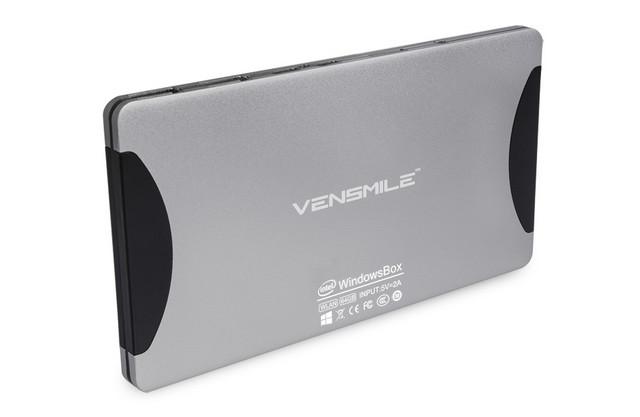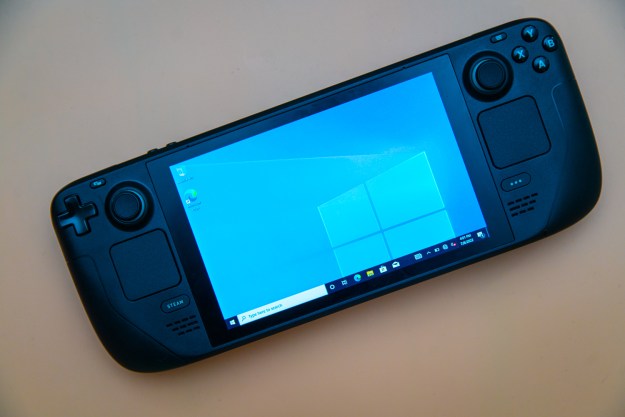
The PC, which is 5.9” x 3.1” x 0.39” in size, retails for $149 on AliExpress, according to lilputing.com. It comes with 64GB of storage and 2GB of RAM, in addition to a 3,000 mAh battery. This allows the device to double as a portable power bank — plug in your drained smartphone and you’ll soon be back in business.
The Vensmile W10 comes with Windows 8.1 and Bing software, as well as an Intel Atom Z3735F Bay Trail processor. It also has Bluetooth 4.0 and 802.11a/b/g/n WiFi.
With two USB 2.0 ports, a microSD card slot and a micro USB port, the device is highly connectable and versatile. It also has a mini HDMI port for when users want to link the Vensmile W10 to a display.
The device has features that mimic many “stick PCs,” which promise a computer experience through the use of a miniature, stick-like device. However, the Vensmile W10 has more of a tablet shape, which visually separates it from items like the Intel Compute Stick.
To flesh out the comparison, the Compute Stick, which debuted at the 2015 Consumer Electronics Show, is four inches long, comes with Windows 8.1, 32GB of storage, 2GB of RAM, and an Intel Atom Z8785F quad-core processor. It also retails for $150, making it similar in price to the Vensmile W10.
But this new product offers a few things that you can’t get with the Compute Stick (more storage being at the top of the list). Its built-in battery also adds to its multi-function appeal, as do its several USB ports.
Editors' Recommendations
- As a lifelong PC gamer, these are the apps I couldn’t live without
- PS5 vs. PC: Which is the better buy for gaming in 2024?
- Helldivers 2 PC performance: best settings, performance, crashing
- How Hyte is tying your gaming PC together with a single cable
- The best PC hardware we saw at CES 2024


